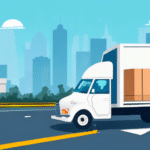Maximizing Efficiency with Outsourcing Car Parts Fulfillment
In today's fast-paced world, businesses are constantly searching for ways to improve their operations and enhance their bottom line. One area where many companies can benefit from outsourcing is their car parts fulfillment process. In this article, we will explore the benefits, costs, risks, and challenges of outsourcing car parts fulfillment. We will also discuss strategies for selecting the right outsourcing partner, best practices for managing an outsourced operation, tools and technologies for streamlining fulfillment processes, case studies of successful operations, and future trends in outsourcing.
Understanding the Need for Outsourcing in Car Parts Fulfillment
Outsourcing car parts fulfillment is a strategy used by businesses to streamline their operations, reduce costs, and improve efficiency. Car parts fulfillment involves the process of fulfilling orders for car parts, including receiving, storing, and shipping them to customers. Outsourcing car parts fulfillment allows businesses to focus on their core competencies, such as product development and marketing, while leaving fulfillment to a specialized partner.
Moreover, outsourcing car parts fulfillment can provide businesses with access to advanced technology and expertise that they may not have in-house. This can include inventory management systems, order tracking software, and logistics optimization tools. According to a 2023 report by Statista, companies that outsource fulfillment operations see an average efficiency improvement of 20%. By leveraging these resources, businesses can improve their overall supply chain management and provide better service to their customers.
Benefits of Outsourcing Car Parts Fulfillment
- Cost Savings: Outsourcing operations to a specialized partner can reduce the cost of warehousing and shipping, as well as eliminate the need for expensive equipment and software.
- Increased Efficiency: Optimized processes and technology can reduce lead times and improve accuracy.
- Improved Customer Service: Faster order processing and delivery times, as well as more accurate inventory management, enhance customer satisfaction.
- Access to Specialized Expertise: Outsourcing partners possess expert knowledge in car parts fulfillment.
- Scalability: Outsourcing partners can quickly adapt to changing business needs, such as seasonal demand fluctuations.
Another significant benefit is the ability to focus on core business activities. By outsourcing non-core activities, such as warehousing and shipping, businesses can concentrate on product development and marketing, leading to increased innovation and competitiveness in the market.
Outsourcing also provides access to a wider network of suppliers and customers. Partners often have established relationships with suppliers and customers, leading to increased opportunities for collaboration and growth, and enhancing market reach and brand recognition.
Cost Savings through Outsourcing Car Parts Fulfillment
Outsourcing car parts fulfillment can result in significant cost savings for businesses. These savings are achieved through reduced labor costs, overhead expenses, and inventory carrying costs. For instance, outsourcing eliminates the need for costly benefits, training, and recruitment expenses associated with in-house employees. Overhead costs such as rent, utilities, and equipment can also be minimized.
According to a Forbes article, companies can save up to 30% on operational costs by outsourcing fulfillment. Additionally, inventory carrying costs are reduced by decreasing the amount of excess inventory that needs to be kept on hand, further enhancing cost efficiency.
In addition to cost savings, outsourcing provides access to specialized expertise and advanced technology. Outsourcing companies often utilize the latest technology and equipment, improving the efficiency and accuracy of the fulfillment process. Experienced professionals in these companies are knowledgeable about industry best practices and can offer valuable insights and advice. By outsourcing car parts fulfillment, businesses can focus on their core competencies and leave the fulfillment process to the experts.
Risks and Challenges of Outsourcing Car Parts Fulfillment
While the benefits of outsourcing are numerous, there are also risks and challenges associated with outsourcing car parts fulfillment. These risks include loss of control, poor quality control, communication breakdowns, and cultural differences. Loss of control can occur when outsourcing partners do not adhere to established standards or fail to provide regular status updates. Poor quality control can result in errors or damage to products during the fulfillment process, impacting customer satisfaction.
Communication breakdowns can arise when outsourcing partners do not communicate effectively with the business or with customers, leading to delays and misunderstandings. Cultural differences, especially when partnering with overseas providers, can create challenges in communication and operational expectations.
One of the biggest challenges is the potential for intellectual property theft. When outsourcing to a third-party vendor, businesses may share sensitive information about their products, processes, and technology. This information can be exploited by competitors or other parties for their own gain. To mitigate this risk, businesses should carefully vet potential outsourcing partners and establish clear contracts that protect their intellectual property.
Choosing the Right Outsourcing Partner for Your Car Parts Fulfillment Needs
Selecting the right outsourcing partner is critical for success in outsourcing car parts fulfillment. The right partner should have expertise in the industry and experience working with businesses of similar size and complexity. Important factors to consider include their technological capabilities, customer service standards, compliance with industry regulations, and financial stability.
Location is also a crucial factor. Partners located in different time zones or countries can impact communication and lead times. Cultural differences may also need consideration. It's essential to assess whether the outsourcing partner has experience working with businesses in your region or country and understands local regulations and customs.
Additionally, reviewing client testimonials and case studies can provide insights into the partner’s reliability and performance. Ensuring that the partner aligns with your company’s values and long-term goals is also vital for a successful partnership.
Strategies for Successful Outsourcing of Car Parts Fulfillment
To ensure success with outsourcing car parts fulfillment, businesses should implement several strategies:
- Establish Clear Objectives: Define what you aim to achieve through outsourcing.
- Develop a Well-Defined Scope of Work: Outline specific tasks and responsibilities.
- Communicate Effectively: Maintain open and regular communication with outsourcing partners.
- Monitor Performance: Use key performance indicators (KPIs) to track the partner’s performance.
- Hold Partners Accountable: Ensure that partners adhere to established standards and expectations.
- Develop a Realistic Timeline: Set achievable deadlines for the fulfillment process.
- Conduct Regular Evaluations: Periodically assess the partnership to ensure continued alignment and performance.
- Foster Strong Relationships: Build a collaborative and trust-based relationship with your outsourcing partner.
One additional strategy is to conduct thorough research on potential outsourcing partners. This includes evaluating their experience, reputation, and capabilities. Choosing a partner with a proven track record of success in the industry and the ability to meet your specific business needs is essential. Additionally, businesses should weigh the cost-effectiveness of outsourcing versus in-house fulfillment and consider the potential benefits and drawbacks before making a decision.
Best Practices for Managing an Outsourced Car Parts Fulfillment Operation
Managing an outsourced car parts fulfillment operation requires careful planning and execution. Best practices include:
- Develop Well-Defined Processes and Procedures: Clearly outline the workflow and responsibilities.
- Communicate Effectively: Establish regular communication channels with outsourcing partners.
- Monitor Performance: Continuously track and assess the partner’s performance against KPIs.
- Exercise Quality Control: Implement strict quality control measures to ensure product integrity.
- Enforce Compliance: Ensure that all operations adhere to industry standards and regulations.
- Conduct Regular Evaluations: Periodically review the operation to identify areas for improvement.
- Provide Regular Feedback: Offer constructive feedback to help partners improve their performance.
- Foster Constructive Relationships: Build a positive and collaborative relationship with outsourcing partners.
Establishing clear lines of communication with the outsourcing partner is crucial. This includes setting up regular meetings to discuss progress, addressing any concerns or issues promptly, and ensuring that both parties are aligned regarding expectations and goals.
Staying up-to-date with industry trends and technological advancements is also important. This helps identify opportunities for improvement and innovation within the outsourced operation, ensuring that the operation remains competitive in the marketplace.
Tools and Technologies for Streamlining Car Parts Fulfillment Processes with Outsourcing
Technology plays a pivotal role in increasing efficiency and streamlining the car parts fulfillment process when outsourcing. Key tools and technologies include:
- Inventory Management Software: Allows businesses to track inventory levels in real-time, ensuring the right parts are always in stock.
- Warehouse Management Solutions: Optimize warehouse operations for better organization and efficiency.
- Real-Time Tracking and Monitoring Systems: Provide visibility into the fulfillment process, enhancing transparency.
- Automated Order Processing: Streamlines order handling, reducing manual errors and speeding up processing times.
- Electronic Data Interchange (EDI): Facilitates seamless data exchange between businesses and their partners.
- Integrated Shipping Solutions: Simplify the shipping process by integrating various shipping carriers into one platform.
Inventory management software is one of the most important tools for streamlining car parts fulfillment processes. This software enables businesses to monitor inventory levels in real-time, ensuring that they have the necessary parts in stock and reducing the risk of overstocking or stockouts.
In addition to technology, outsourcing can help businesses streamline their fulfillment processes by leveraging the expertise and resources of third-party logistics providers. These providers often have specialized equipment, such as automated picking and packing systems, and a network of warehouses and distribution centers that enable quicker and more efficient customer deliveries.
Case Studies: Successful Examples of Outsourced Car Parts Fulfillment Operations
There are numerous successful examples of outsourced car parts fulfillment operations:
- Leading Car Parts Company: Partnered with a fulfillment services provider, resulting in increased efficiency, reduced costs, and improved customer service.
- Online Car Parts Retailer: Collaborated with a logistics provider, leading to faster delivery times and improved inventory accuracy.
Additionally, outsourcing car parts fulfillment operations can provide benefits such as access to advanced technology and expertise in supply chain management. For example, companies can implement automated inventory management systems, utilize data analytics to forecast demand, and streamline order processing and shipping by partnering with specialized fulfillment providers. These collaborations can lead to optimized operations and enhanced overall performance.
Future Trends in Outsourcing for Car Parts Fulfillment
The future of outsourcing for car parts fulfillment is promising, with several emerging trends shaping the industry:
- Growth of E-Commerce: The increasing reliance on online sales channels is driving the need for more efficient and scalable fulfillment solutions.
- Big Data Analytics: Leveraging big data to improve efficiency and productivity through better demand forecasting and inventory management.
- Robotics and Automation: Utilizing robotics and automated systems to enhance accuracy and reduce labor costs in the fulfillment process.
- Artificial Intelligence (AI): Implementing AI to optimize logistics, predict maintenance needs, and personalize customer experiences.
- 3D Printing Technology: Allows for the creation of complex parts with greater precision and speed, reducing the need for traditional manufacturing processes. According to a McKinsey report, 3D printing can reduce inventory management and transportation costs by up to 25%.
As 3D printing technology continues to advance, it is expected to become a more common solution for car parts fulfillment outsourcing, enabling on-demand production at various locations and further reducing costs associated with inventory and logistics.
Conclusion: Making the Most of Your Outsourced Car Parts Fulfillment Strategy
Outsourcing car parts fulfillment is a strategy that can benefit businesses of all sizes. Through outsourcing, businesses can reduce costs, improve efficiency, and enhance customer service. To maximize the benefits of an outsourcing strategy, businesses should:
- Carefully Consider Options: Evaluate the pros and cons of different outsourcing models.
- Select the Right Partner: Choose a partner with the right expertise and a proven track record.
- Establish Clear Objectives: Define what you aim to achieve through outsourcing.
- Communicate Effectively: Maintain open and regular communication with your outsourcing partner.
- Monitor Performance: Continuously track and assess the partner’s performance against set KPIs.
By following these best practices and leveraging the latest technologies, businesses can achieve success with outsourcing car parts fulfillment, ensuring streamlined operations and a competitive edge in the market. For more information and resources, visit ShipScience.




















